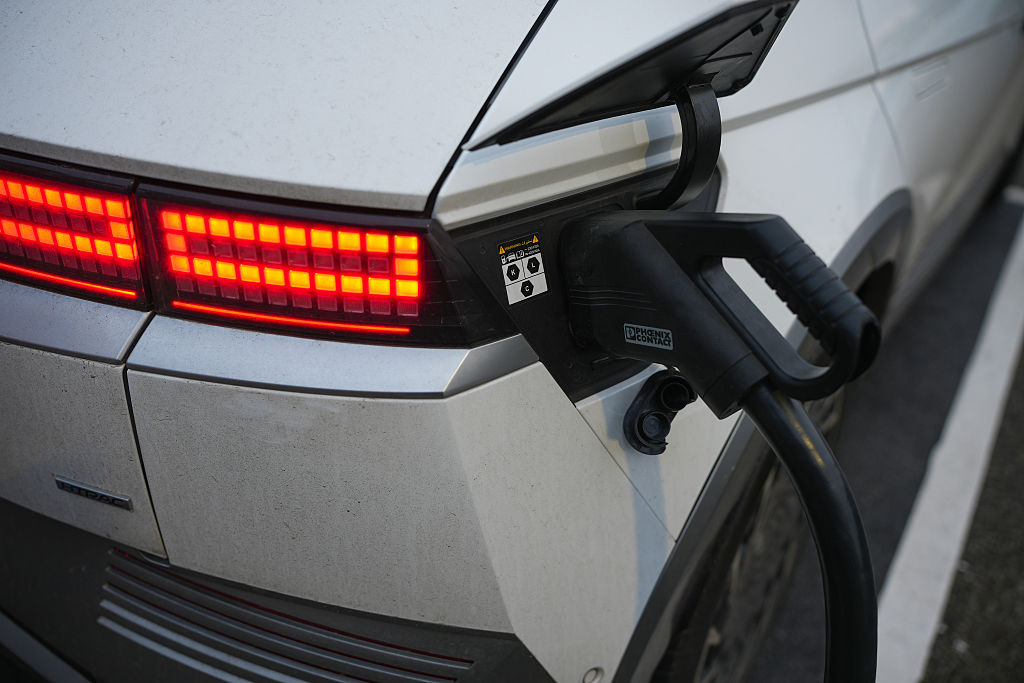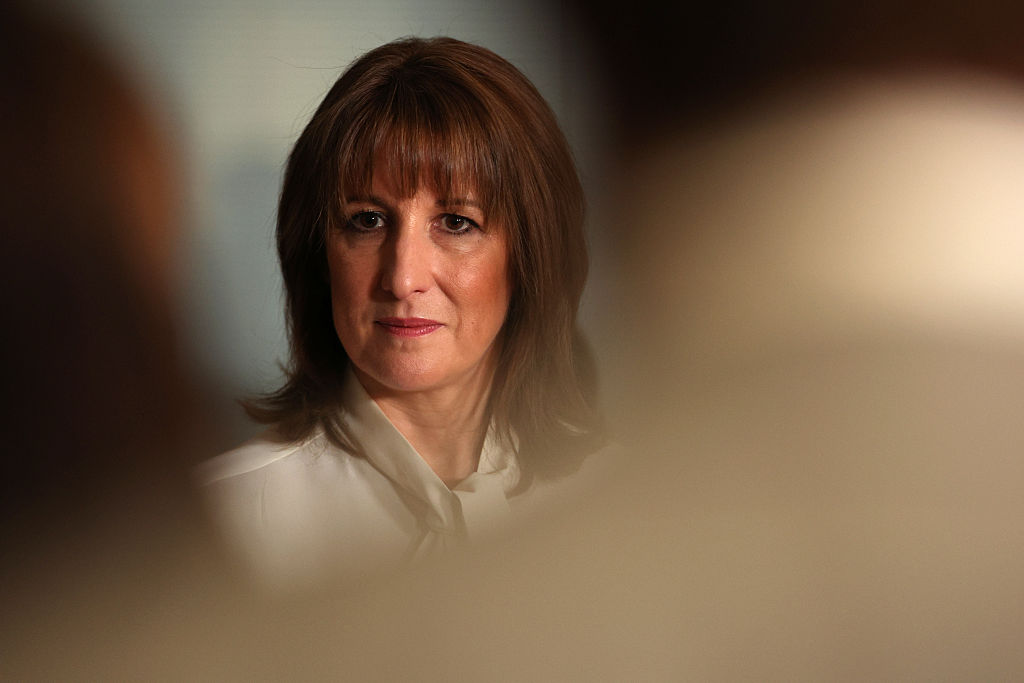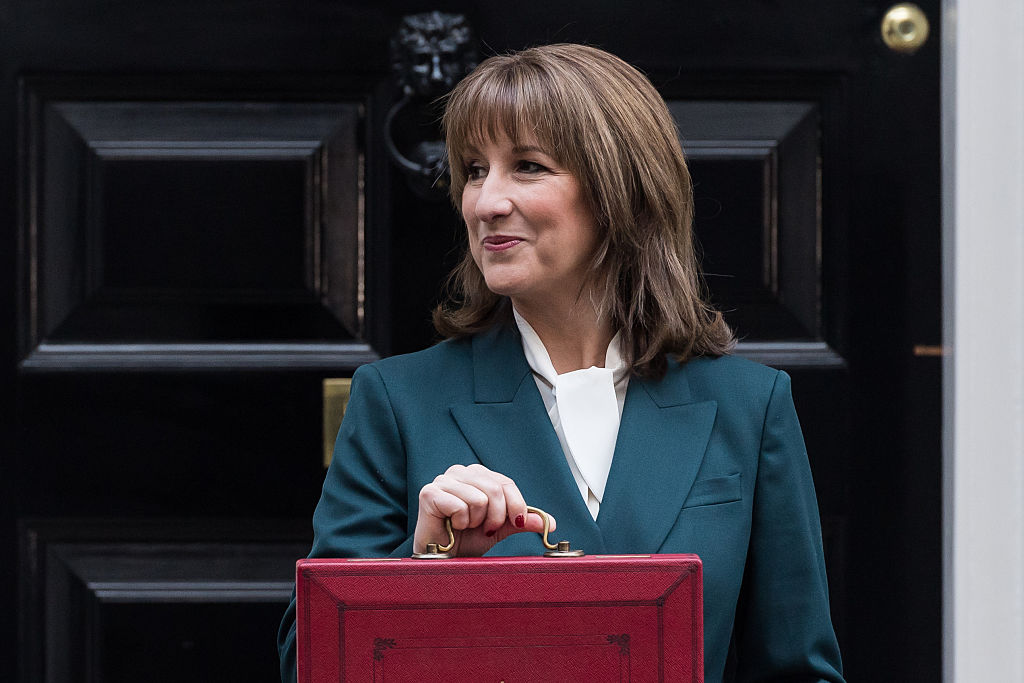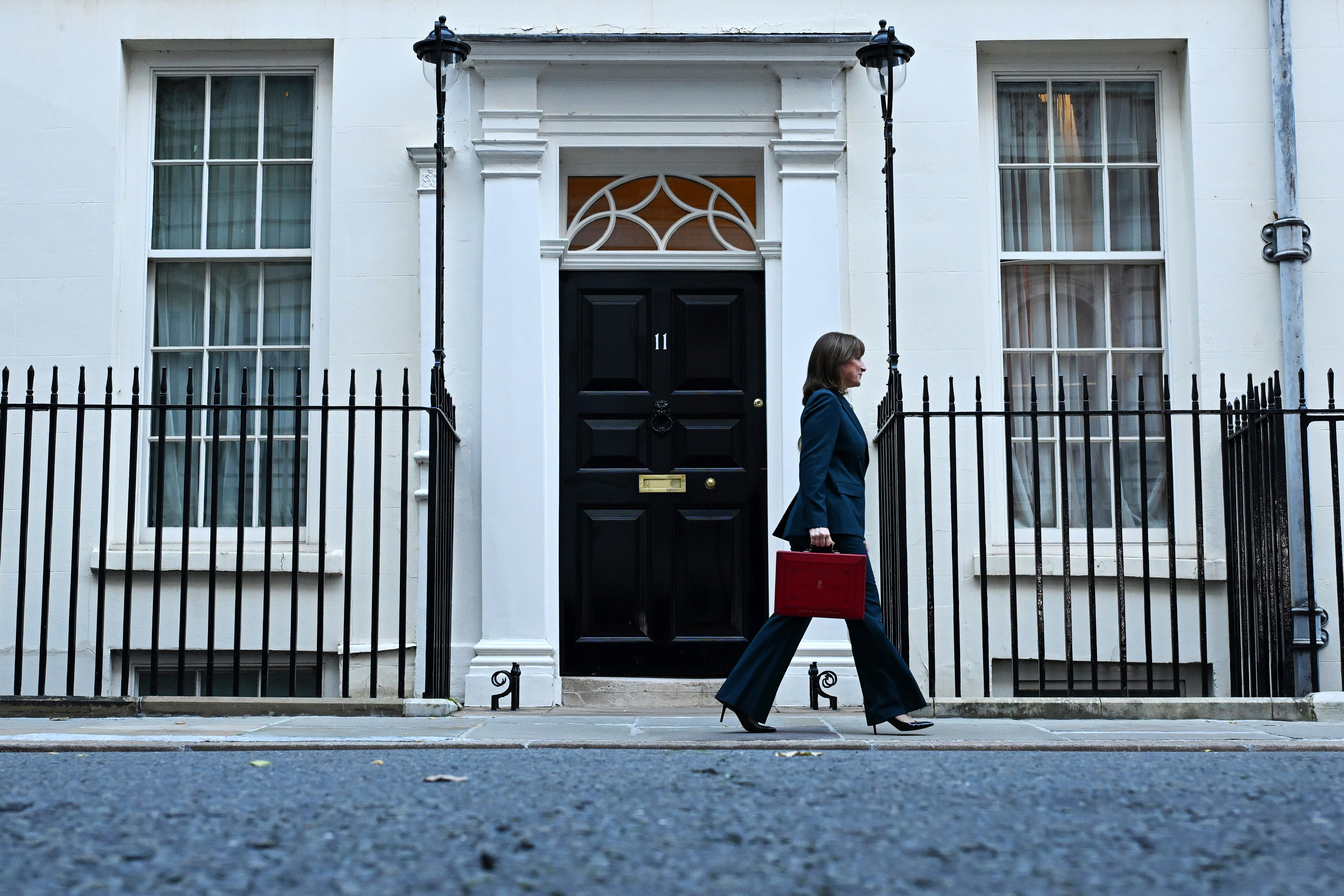Electric vehicle drivers to be charged new per mile tax from 2028
Taxation on electric vehicles will be brought closer in line with petrol and diesel cars, as drivers will be forced to pay 3p per mile driven under a new levy.


Get the latest financial news, insights and expert analysis from our award-winning MoneyWeek team, to help you understand what really matters when it comes to your finances.
You are now subscribed
Your newsletter sign-up was successful
Want to add more newsletters?

Twice daily
MoneyWeek
Get the latest financial news, insights and expert analysis from our award-winning MoneyWeek team, to help you understand what really matters when it comes to your finances.

Four times a week
Look After My Bills
Sign up to our free money-saving newsletter, filled with the latest news and expert advice to help you find the best tips and deals for managing your bills. Start saving today!
Taxation on electric vehicles will be brought closer in line with petrol and diesel cars, as drivers will be forced to pay 3p per mile driven under a new levy.
Drivers of electric vehicles (EVs) will become subject to a new tax for every mile they drive, chancellor Rachel Reeves has confirmed in her Autumn Budget.
Taking effect in April 2028, EV drivers will have to pay a new levy of up to 3p per mile, as the chancellor brings the taxation of EVs closer in line with that of petrol and diesel cars.
MoneyWeek
Subscribe to MoneyWeek today and get your first six magazine issues absolutely FREE

Sign up to Money Morning
Don't miss the latest investment and personal finances news, market analysis, plus money-saving tips with our free twice-daily newsletter
Don't miss the latest investment and personal finances news, market analysis, plus money-saving tips with our free twice-daily newsletter
Fully electric battery vehicles will be subject to the full 3p per mile tax, while plug-in hybrid vehicles will have to pay a reduced rate of 1.5p per mile. These rates will increase each year in line with inflation, as measured by the consumer prices index (CPI).
The new levy was designed to provide a rough equivalent to fuel duty, which is paid by drivers of petrol and diesel vehicles on each litre of fuel. The 3p per mile charge is around half the equivalent cost of fuel duty per mile.
The average driver of a fully electric car, travelling 8,500 miles a year, can expect to be charged around £255 in the 2028/29 tax year under the new regime.
The government is in the process of consulting on the policy, but anticipates that mileage will be self-reported, possibly during an annual MOT, with “no requirement to report where and when miles are driven or install trackers in cars".
The Office for Budget Responsibility (OBR), the UK’s fiscal watchdog, says the measure will raise around £1.1 billion in the 2028-29 tax year, rising to £1.9 billion in 2030-31.
However, the OBR has also warned that the new measure is “likely to reduce demand for electric cars as it increases their lifetime cost,” expecting 440,000 fewer electric car sales by 2030/31.
Meanwhile, to soften the blow, the chancellor also announced that the UK’s new electric vehicle grant, worth between £3,500 and £7,500 depending on the model, will be extended until at least 2030.
And, despite rumours she would axe the scheme, electric cars can still be bought using salary sacrifice.
New pay-per-mile tax on EVs is a “confused” policy
EV policies announced in the Budget have received a mixed reception from industry leaders.
Melanie Lane, chief executive of EV charging provider Pod, said the decisions “have further complicated the outlook for motorists and manufacturers that are looking for clarity on their commitments to the EV sector”.
She welcomed the extension of the Electric Car Grant, but warned that introducing the new pay-per-mile levy “is at odds” with the Government’s messaging about “backing the switch”.
“This confused policy approach will shake consumer confidence and potentially jeopardise investment in the sector at a critical moment,” she added.
“We are already falling behind on the ZEV mandate that expects one in three cars sold to be zero-emissions next year and today’s confirmation of additional mileage costs from 2028 will penalise motorists and manufacturers who are fulfilling their end of the bargain.”
Meanwhile, Steve Walker, head of digital content at Auto Express, said the introduction of the new tax was inevitable considering the number of UK drivers who are moving away from petrol and diesel vehicles.
He said: “Petrol cars will be on the road for many years to come, but every EV sold is one fewer that’s visiting petrol stations and pumping money into Treasury coffers.”
Walker acknowledged that the new levy will “prove controversial”, especially since the government had sought to incentivise the purchase of more EVs when they introduced the new grant earlier this year.
“A major issue now will not only be a reduction in sales – even the OBR is suggesting it could reduce the number of EVs sold before 2030 by hundreds of thousands – but how the system is implemented.
“Early suggestions that drivers might need to declare mileage ahead of time raise genuine concerns; if motorists end up being charged for miles clocked outside the UK, that would clearly be unfair and a major flaw that must be addressed before any scheme goes live.
“Getting these details right will be critical to public acceptance.”
Get the latest financial news, insights and expert analysis from our award-winning MoneyWeek team, to help you understand what really matters when it comes to your finances.

Daniel is a financial journalist at MoneyWeek, writing about personal finance, economics, property, politics, and investing.
He covers savings, political news and enjoys translating economic data into simple English, and explaining what it means for your wallet.
Daniel joined MoneyWeek in January 2025. He previously worked at The Economist in their Audience team and read history at Emmanuel College, Cambridge, specialising in the history of political thought.
In his free time, he likes reading, walking around Hampstead Heath, and cooking overambitious meals.
-
 Should you buy an active ETF?
Should you buy an active ETF?ETFs are often mischaracterised as passive products, but they can be a convenient way to add active management to your portfolio
-
 Power up your pension before 5 April – easy ways to save before the tax year end
Power up your pension before 5 April – easy ways to save before the tax year endWith the end of the tax year looming, pension savers currently have a window to review and maximise what’s going into their retirement funds – we look at how
-
 Rachel Reeves is rediscovering the Laffer curve
Rachel Reeves is rediscovering the Laffer curveOpinion If you keep raising taxes, at some point, you start to bring in less revenue. Rachel Reeves has shown the way, says Matthew Lynn
-
 Investing in forestry: a tax-efficient way to grow your wealth
Investing in forestry: a tax-efficient way to grow your wealthRecord sums are pouring into forestry funds. It makes sense to join the rush, says David Prosser
-
 'Expect more policy U-turns from Keir Starmer'
'Expect more policy U-turns from Keir Starmer'Opinion Keir Starmer’s government quickly changes its mind as soon as it runs into any opposition. It isn't hard to work out where the next U-turns will come from
-
 UK interest rates latest: December 2025
UK interest rates latest: December 2025Live Report The Bank of England’s Monetary Policy Committee (MPC) has cut interest rates from 4% to 3.75%
-
 Rachel Reeves's punishing rise in business rates will crush the British economy
Rachel Reeves's punishing rise in business rates will crush the British economyOpinion By piling more and more stealth taxes onto businesses, the government is repeating exactly the same mistake of its first Budget, says Matthew Lynn
-
 The consequences of the Autumn Budget – and what it means for the UK economy
The consequences of the Autumn Budget – and what it means for the UK economyOpinion A directionless and floundering government has ducked the hard choices at the Autumn Budget, says Simon Wilson
-
 Why UK stocks are set to boom
Why UK stocks are set to boomOpinion Despite Labour, there is scope for UK stocks to make more gains in the years ahead, says Max King
-
 Autumn Budget winners and losers
Autumn Budget winners and losers"Someone has to suck up the costs - those who can pay will pay,” says Kalpana Fitzpatrick